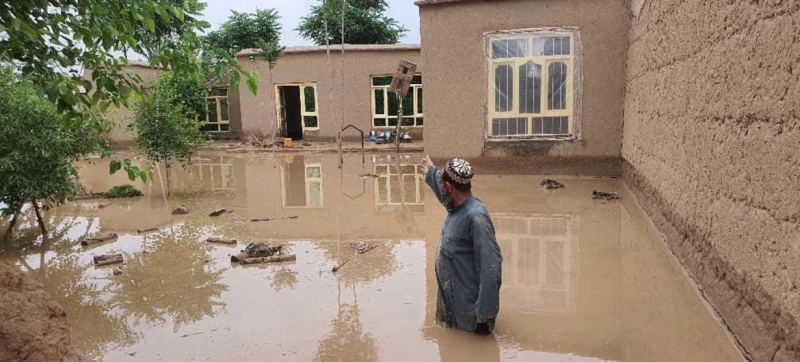
Residents of northeastern Afghanistan are suffering from flash floods. Floods in Afghanistan: UN provides humanitarian aid to victims Humanitarian assistance
UN humanitarian agencies have mobilized assistance to communities affected by flash floods in northeastern Afghanistan over the weekend. The floods reportedly killed at least 300 people, including 51 children, and injured many others.
These numbers are expected to increase as more data becomes available, the UN says.
“The United Nations and its partners in Afghanistan are coordinating with de facto authorities to quickly assess needs and provide emergency assistance,” the UN chief’s spokesman said in a statement. Antonio Guterres also conveyed wishes for a speedy recovery to the victims and condolences to the families of the victims.
Most of the casualties were recorded in Baghlan province, where heavy rains destroyed about 3 thousand houses and led to the flooding of agricultural land , loss of livestock, closure of schools and damage to medical centers.
According to the UN Children’s Fund (UNICEF), the provinces of Takhar and Badakhshan were also damaged: according to preliminary data, no less than 300 houses.
UN teams on the ground
“UNICEF and our partners are on the ground and working hard to provide immediate assistance to affected families and communities,” UNICEF Afghanistan Representative Tajudeen Oyewale said on Sunday, expressing condolences to the bereaved families.
“Heavy rains and subsequent flooding have disrupted daily life and pose a significant risk to children in the affected provinces,” Oyewale said. “As families cope with losses, maintaining access to safe water, health care and protection services is paramount. As always, UNICEF stands with the children and people of Afghanistan during this difficult time.”
Operational assistance
In collaboration with partners, UN agencies began distributing assistance.
In particular, UNICEF sent 450 family kits, 500 hygiene kits, 476 blankets for adults and infants and 100 sets of clothing to affected areas .
Meanwhile, the International Organization for Migration (IOM) is distributing emergency shelter materials, essential goods, solar panels, clothing and tools to repair damaged housing.
UN World Food Program ( WFP) distributes special food to the victims. The WFP said the flooding is one of many emergencies caused by incredibly heavy rainfall around the world in recent weeks.
Sustaining Humanitarian Efforts
UN Emergency Relief Coordinator Martin Griffiths stressed that “this extreme weather event highlights the need for climate-resilient humanitarian efforts.”
UN Office of Coordination of Humanitarian Affairs (OCHA) is working with partners and national authorities to provide shelter, food and medical assistance to the population, he said in a post on the X platform on Sunday.
Afghanistan is one of the ten countries most vulnerable to climate change. Recently, there has been an increase in the number of natural disasters, particularly floods, droughts, sand and dust storms, resulting in loss of life, destruction of livelihoods and significant damage to infrastructure.
Read also:
